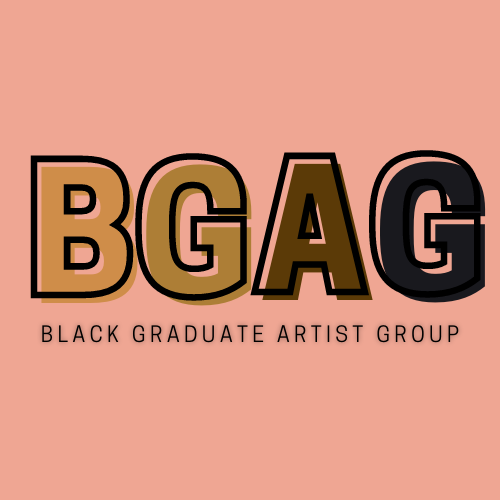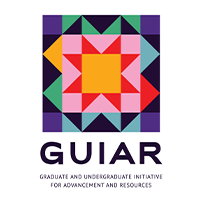Social Justice Mini Grants
The Office of Diversity and Inclusion (ODI) offers a one-time Social Justice Mini-Grant up to $2000 for those who focus on community-forward research. This yearlong mini-grant seeks to support Northwestern graduate students in facilitating, promoting, and advancing innovative ideas on social justice and belonging in Northwestern and larger communities.
$60,000
awarded since 2021
Graduate students and graduate student affinity groups whose work reflects the principles of social justice, community building, diversity and inclusion and/or sustainability are encouraged to apply.
Applicants:
Only Northwestern University postdocs, graduate students (MA, MFA, and PhD) and/or graduate student affinity groups are eligible to apply.
The Social Justice Mini-Grants are not eligible for faculty. However, faculty that work with and advise graduate affinity groups will not affect eligibility.
Eligible and Ineligible Activities:
The Social Justice Mini-Grants are intended to provide support for NU members whose work or service advances, or challenges, the Northwestern community to foster greater diverse and equitable environments on campus and beyond.
Examples of eligible activities include:
- Research projects that advance the study of social equity in the arts and humanities
- Projects that foster community and belonging in STEM
- Projects that seek to create gender equitable online & technological practices
- Activists, social workers and organizations that seek to influence social changes beyond academia
- Projects that respond to the COVID-19 pandemic and the disenfranchisement of communities of color.
- Climate surveys and programming, with an effort to change department culture to be more inclusive at Northwestern University
- Mentorship programs at Northwestern University and neighboring communities
- Hosting conferences on equity and inclusion
Projects, research, and service are not limited to the examples provided and we’re looking forward to the creative and collaborative ways these funds can be used.
Ineligible activities and allocations include:
- Conference travel and lodging
- Provide a salary
- Pay a debt
- Cover personal expenses
Terms of Acceptance:
All grantees are expected to submit a 5-7 recorded presentation on their work, describing the proposal and how it came into fruition within the past year. The presentation should include the following elements:
- Description of your project
- How the grant was utilized
- Findings and results of your project
- Overall experience with the process
- How your project facilitated, promoted, and/or advanced innovative ideas on social justice and belonging in the Northwestern Community
Application Review Process
A committee of TGS staff will review the applications on the following categories:
- Commitment to Social Justice
- Leadership
- Service
- Projected Impact/Influence
- Clarity and Organization of Proposal
Application Timeline
All required materials and information must be submitted by Monday, May 31 to be considered for the Social Justice Mini Grants. Awardees will be announced in Summer 2024.
Awardees for 2022 – 2023
Stefany Cruz
This project aims to democratize computing by developing wearable technology for minority low-income communities.
Divya Daripalli
This project will provide disadvantaged students with a workshop tailored to allow exploration of identity and the self, advance academic writing skills, exercise imagination and creativity.
James Gibb
This project has the following objectives: 1) measure the degree to which LGBTQ+ people’s experiences food insecurity in Chicago; 2) document LGBTQ+ people’s lived experiences accessing food and related resources; and 3) assess how food insecurity impacts the health and wellbeing of LGBTQ+ people living in Chicago.
Monique Newton
This project examines the relationship between Evanston Black residents and the Evanston police department through interviews with current Black Evanston residents, with specific focus on equal treatment.
Mara Ulloa
This project's objectives are to build community between Northwestern (NU) graduate students and diverse Chicago youth learning to code, and for Chicago youths’ to understand the need for social support and mental health interventions.
Black Graduate Artist Group
The mini-grant will support the work of BGAG’s Hothouse Development Series, an ongoing set of artistic workshops supporting graduate artists of color. This work aims to provide producer resources for graduate artists of color to develop plays, dance pieces, screenplays, musicals, devised/experimental pieces, and physical theater.
Code'n'Color
The mini-grant will support Code'n'Color's two day welcome retreat for new and returning Black, Indigenous, and Latinx students (hereafter abbreviated as BIL students) in the Computer Science (CS) department.
Inclusion, Diversity, Equity, and Accessibility (IDEA) Committee
The mini-grant will fund programming for underrepresented and marginalized (URM) students in STEM on the Chicago campus for networking and community building.
Northwestern University Building on Diversity (NUBonD)
The mini-grant will support programming for networking within Northwestern’s STEM research community, with emphasis to uplift first-generation, low-income, or other underrepresented background (FGLI+) individuals.
Northwestern University Society for Advancement of Chicanos/Hispanics & Native Americans in Science (NU SACNAS)
The mini-grant will support the provision of workshops for DEI Committee building and professional development.
Social Changemakers: Celebrating Social Justice Mini-Grant Awardees
The Graduate School Office of Diversity and Inclusion (ODI) is thrilled to announce the launch of the Social Changemakers Video Series, celebrating the innovative projects of ODI Social Justice Mini-Grant Awardees. These grants were created to support Northwestern graduate students in advancing ideas of social justice and belonging on campus, and the Video Series highlights the remarkable work of those who were awarded the grant and chose to share their projects with the Northwestern community. This series is an opportunity to learn about the meaningful work being done by our students, and we invite those who share our commitment to social justice and inclusivity to apply for the 2023 ODI Social Justice Mini-Grant.
Graduate students and graduate student affinity groups whose work reflects the principles of social justice, community building, diversity and inclusion, and/or sustainability are encouraged to apply by Monday, May 1.
Learn how these mini-grants have supported past recipients below:
STEM Diversity, Equity & Inclusion (DEI) Committees Training, NU SACNAS
“The mini-grant was used to fund a DEI committee training open to all STEM departments/committees at Northwestern. The mini-grant allowed NU SACNAS to provide a platform for professors and students to reflect, exchange, and discuss about their experiences and parallels to foster empathy and understanding. Additionally, it allowed DEI committees to have a framework as to how to execute their work. Finally, it inspired and fomented the foundation for departmental DEI committees to provide community-building activities.”
Learn more about the STEM DEI Committees Training project here.

Hothouse Development Series, Black Graduate Artist Group
“Black Graduate Artist Group used the grant to develop the Hothouse Development Series which served as a collaborative space for original work by graduate and PhD students of color at Northwestern. We aimed to support anything meant to be performed: this means plays, films, movement, or any other kind of performance art. Over the course of three quarters, we were able to support and produce five original projects. We successfully shared amongst our communities by uplifting interdisciplinary collaborations both inside and outside of Northwestern. We believe that having spaces that de-center whiteness are critical for artists of color to take risks when making racially, culturally, or ethnically specific work.”
Learn more about the HotHouse Development Series here.
 Graduate and Undergraduate Initiatives for Advancement and Resources (GUIAR), Comunidad Latinx (CLX)
Graduate and Undergraduate Initiatives for Advancement and Resources (GUIAR), Comunidad Latinx (CLX)
“The mini-grant was used to start a mentorship program between Latinx graduate and undergraduate students at Northwestern. The grant was extremely influential because it was used to pay for some of the backend work such as creating a logo and guidelines. The Grant was also used to pay for most of the programming the project had this year such as social events, workshops, and one on one mentoring.”
Learn more about the GUIAR project here.
 Police Brutality Impact on Stress in Pregnancy, Northwestern & NorthShore University Health System
Police Brutality Impact on Stress in Pregnancy, Northwestern & NorthShore University Health System
"The mini-grant funding was used to purchase qualitative data analysis software for our team to analyze the interview data we collected in 2020-2021. The funding is also being used this summer to pay focus group discussion participants for their contributions and time. The mini-grant funding allowed us to move our research project along and expand our examination of the effects of police brutality and violence on pregnant Black Chicagoans from their own voices."
Learn more about the Impact Research Project here.
 Shades of Persuasion: How Race and Skin Tone Influence Public Persuasion, Jordan Daley
Shades of Persuasion: How Race and Skin Tone Influence Public Persuasion, Jordan Daley
"We used our funds to recruit participants for our initial study and to fund early logistic and material needs for our follow-up study. Without the funds, we would not have been able to recruit such a robust sample, and our methods/materials for both this study and the follow-up study would have been far more limited. Finally, it freed up collaborators from needing to seek funding elsewhere, to spend more time thinking carefully through design and material implementation."
Learn more about the Shades of Persuasion study here.